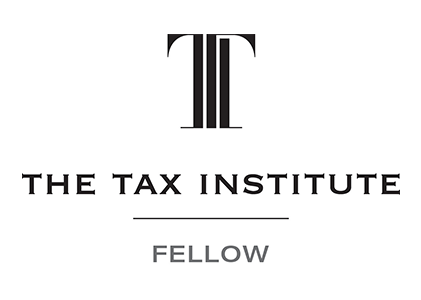
Everyone goes through the odd rough patch in their relationships with one another and SMSF trustees are no different. However the ramifications of a dispute between trustees are likely to have more wide ranging affects than the average quarrel between friends as SMSF trustees have vested interests, established duties and legal responsibilities towards the fund, where if breached, can result in severe penalties that could affect members’ retirement benefits.
How can disagreements between trustees come about?
SMSF trustees are required to sign a trust deed that requires them to adhere to certain responsibilities, some of which require them to:
- act honestly in all matters concerning the fund,
- exercise skill and diligence in managing the fund,
- act in the best interests of all members,
- keep the money and assets of the SMSF separate from personal money and assets,
- retain control over the fund,
- develop and implement an investment strategy as well as make investment decisions,
- not enter into contracts or behave in a way that hinders them or other trustees from performing or exercising function or powers,
- allow access to information for all members, and,
- not allow early access to the retirement savings of the fund.
Together with all the superannuation laws – and the corporate trustee constitution in the case of corporate trusteeships – a trust deed forms an SMSF’s governing rules, which will include such things as the duties and obligations of trustees, the payment of member benefits and fund administration.
Personal interpretation of how best to adhere to these duties can lead to disputes. For instance, an overriding requirement of every SMSF is that it fulfils the “sole purpose test” – the sole purpose being that the fund is established to provide benefits to each member at retirement age or to a member’s dependants upon the member’s death. There are, however, various ways to achieve a common goal and disagreements about how best to do that are not uncommon.
Various issues can give rise to disputes. What to invest in and how much to invest can be a hotbed of discussion, because notwithstanding the fund’s written investment strategy, trustees can have different opinions on how best to satisfy strategies on diversification and asset allocation.
Other issues that regularly crop up are typically regarding the allocation and payment of death benefits, the end of business partnerships, treatment of business real property and disagreements between spouses.
Another area where disputes commonly occur is if the SMSF considers admitting new members into the fund. One trustee may be eager to bring in a family member or a new spouse that other trustees may have no wish to be financially involved with. This last potential area for disputes may become more of an issue should floated plans eventuate to increase the minimum membership of SMSFs from four to six.
What are the best ways to prevent a dispute?
Disputes are unpleasant but they are unavoidable in many circumstances. They commonly arise when there are two or four trustees – a situation that serves as a breeding ground for deadlocks. Where there are three members, two can outvote one and where there is a single member (such as in a corporate trusteeship), no disagreements will arise – making a single-member SMSF the safest fund of choice if the main point is to have no disagreements.
Each trustee must act in the best interest of all fund members irrespective of any differences that emerge between trustees. For instance, a trustee cannot exclude another trustee from making decisions concerning the SMSF, cannot unlawfully withdraw money from the SMSF and must address each trustee’s requests – that is, when it comes to requests to redeem assets and transfer super savings into another superannuation fund.
Trustees can establish certain “deadlock-breaker” provisions – provided there is more than one trustee in the fund – to minimise the likelihood of disputes. These can include:
- carry out a trustee decision only if a simple majority of trustees agree to it, or if a unanimous vote by all trustees is made,
- make a notice of a trustee meeting in writing with a minimum notice period,
- allow voting by proxy, telephone or email, or to be more strict, stipulate that if a trustee cannot attend a meeting, they do not get a vote on decisions dealt with at that meeting, and
- conversely, only allow decisions to be made if all trustees are physically present at a meeting.
The trust deed is typically the first port of call in a dispute.Trustees of SMSFs should consider inserting dispute resolution measures or advance guidance on how disputes can be approached into their trust deed. A handy way to prevent the mismanagement of assets in the case of a dispute is to use safeguards such as joint bank account signatures.
What are the best ways to resolve a dispute?
If a dispute is well and truly underway, there are mechanisms in place to ensure the matter is dealt with. Disagreements can either be settled through alternative dispute resolution techniques – such as mediation, conciliation and arbitration – or via a court hearing for more serious cases.
The ATO is not involved in resolving disputes between trustees unless the dispute is over a breach of SMSF law, and even then any intervention will most likely be to iron out regulatory issues.The ATO can provide general advice about your options in resolving disputes.
Those SMSFs that use a corporate trustee structure may have mechanisms to deal with dispute resolution through the Corporations Act and regulations or may be able to obtain guidance from the corporate trustee’s constitution.
The Superannuation Complaints Tribunal is a last resort if no settlement of the argument is found through other channels, although for SMSFs the help available is limited (see www.scr.gov.au). Note that the tribunal has no scope to adjudicate disputes between trustees, nor determine payments of benefits. The Supreme Court has jurisdiction over trust law.
Throughout the dispute resolution process, trustees must ensure their fund remains compliant with superannuation law. One important step that should not be overlooked is the updating of legal documents in the aftermath of a dispute where a trustee has left the fund.
Ramifications
If a fund does not comply with superannuation law during a dispute, the ATO can deem the fund non-compliant – which is more than a slap on the wrist as this will remove the concessional tax treatments that SMSFs enjoy and could leave the fund open to be taxed at the highest marginal rate.
Measures can be carried out to mitigate disputes, but the fact remains that SMSFs with more than one trustee will never be completely immune from disagreements. That aside, a well-drafted trust deed, a rational outlook as well as prudent planning can assist with or better still prevent such disputes from arising.
Tax Store Accountants Dandenong.
Our Management Credentials




